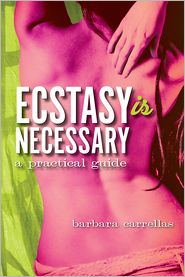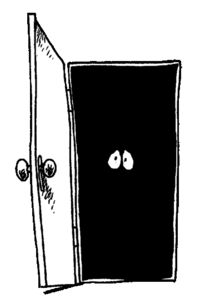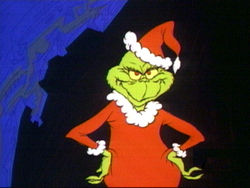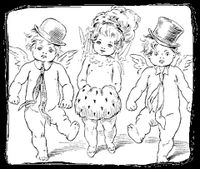Hello, Dear Heart
My lung cancer is back—not in my lung, but in some lymph node. Here comes surgery, chemo, and radiation again. Now, kindly allow me to put this in a perspective and context that I promise is NOT scary. Really, I’m doing super well with this, and I’ve got a lot to tell you that I’m finding out, so please hang in here with me. Trust me, I’m The Auntie.
Right, history first: I was first diagnosed with lung cancer on September 24, 2012. I had surgery to remove the upper lobe of my right lung. The surgical team tried real hard, but they didn’t get it all. Normally, I would’ve gone straight on to chemo and radiation. But a big deal medical oncologist determined that there was no chemo that would work on me. If I wanted to live, he told me, it had to be by radiation alone. To be fair, the doctor was confronted by a challenge in me. I’ve got a whacky health status and, an immune system compromised by chronic lymphocytic leukemia that was first diagnosed in 1996. Plus, I’ve got a body grown on testosterone, that’s now running on estrogen. Genital conversion surgery aside, I’m minus a gall bladder, half a liver, and 12 inches of intestine. I’ve got cervical dystonia and scoliosis. I’m a rambling wreck! And, hello… I’m OLD! (Oh yes, I am. More on that later.) But y’know what the last straw was—the final thing about me that would bar me from all approved chemo regimens? Tinnitus. All my life, I’ve had a ringing in my ears. I didn’t learn until high school that I was the only one hearing all those mad bells and buzzers. I thought you heard them, too… all the time, like me. Well, tinnitus is a common side-effect of most chemo, and what it could do to me was make me deaf, and maybe even kill me. Like in Buffy or Haven, blood would leak out of my ears and I’d die, that’s what he implied anyway. Yes, honey, I do tend to exaggerate, but truly: it was the ringing in my ears when the big deal medical oncologist threw up his hands and, with a look of pity, handed me over to the radiologist.
My girlfriend and I did a lot a research—friends gave us terrific advice for alternative treatments. Through my touring work and book income, I’ve been able to pay for insurance that covered me fairly well for medicorp-government-approved procedures. But I had insufficient money to cover any forms of treatment outside the approved regimens—not to mention the cost of living while getting those treatments. That’s when my miracle happened. That’s when some friends came to my side. Thousands and thousands of friends and family came to my side. Maybe one was you—maybe you sent me money and/or you sent me love. One week of crowd-sourcing raised me over $100,000. Thousands of you. Thousands of people told me they love me. Can you imagine what a lasting blow that was to my low self-esteem?!
Well, the money raised covered it all. Thank you. Acting on the advice of Kris Carr, I found a clinic in Chicago where the doctors did their homework and found a chemo treatment that had just passed a stage two clinical trial. I began chemo on my birthday, March 15 2013, and I continued to travel to Chicago every three weeks through June. At the same time, I received 33 days of radiation, here in New York City. And it all worked. The cancer was gone, and it had been a year to the day since I was first diagnosed. Such relief and joy!! I had six amazing cancer-free months, during which I got back out on the road for some unforgettably wonderful engagements. What’s more, I’ve had the time and circumstances and good health to begin a novella—a book I’m writing just for the love of writing it. It’s delightful fiction that I’ve been wanting to write now for over a decade, but other books needed to come first. As of this past Christmas, I’d got through the first two chapters. Then, on December 30th, a PET CT revealed, and a fine-needle aspiration confirmed: yep, the lung cancer is back.
Darling, those were always the odds. That’s how cancer works. So now, I’m simply moving on with the next phase of living with cancer: more treatment. Treatment this time around begins with surgery at the end of January—then weekly chemo + daily radiation starting probably in the second week of February.
As to my touring schedule, I’m still working out my calendar with the doctors, but I’ve confirmed that I can do my week-long, six-city tour of Wisconsin, February 3-8. After that, I’ll do my very best to make all the gigs I’m already committed to. And for now, my booking calendar is closed for any new engagements before May or June. I hate to disappoint, and I thank you for your kind understanding.
Dear heart, please know I am dealing REALLY WELL with this. Of course I get scared, and I’ve named my fear as a realistic dread of the inevitably noxious side-effects of chemo and radiation. BUT… I’m not beating myself up for feeling scared, and I’m changing my perspective by reflecting on the delightful paradox: chemo and radiation are exactly what’s gonna let me live longer. Wanting to live longer is new for me. I’m not used to it. But I like it. Why do I wanna live longer? Well… for you. Truly. I so enjoy being your old auntie, and what’s an old auntie without her nieces and nephews?? So, fuck dread. And fuck cancer. I’m gonna write another non-fiction book about my life with cancer… I’ll get to that after I write my novella. See, now? I do plan to be around for awhile. That’ll get me two new books, and (lots) more time with you. I’m so looking forward to that. Thank you for your love.
Kiss kiss
Auntie Kate





